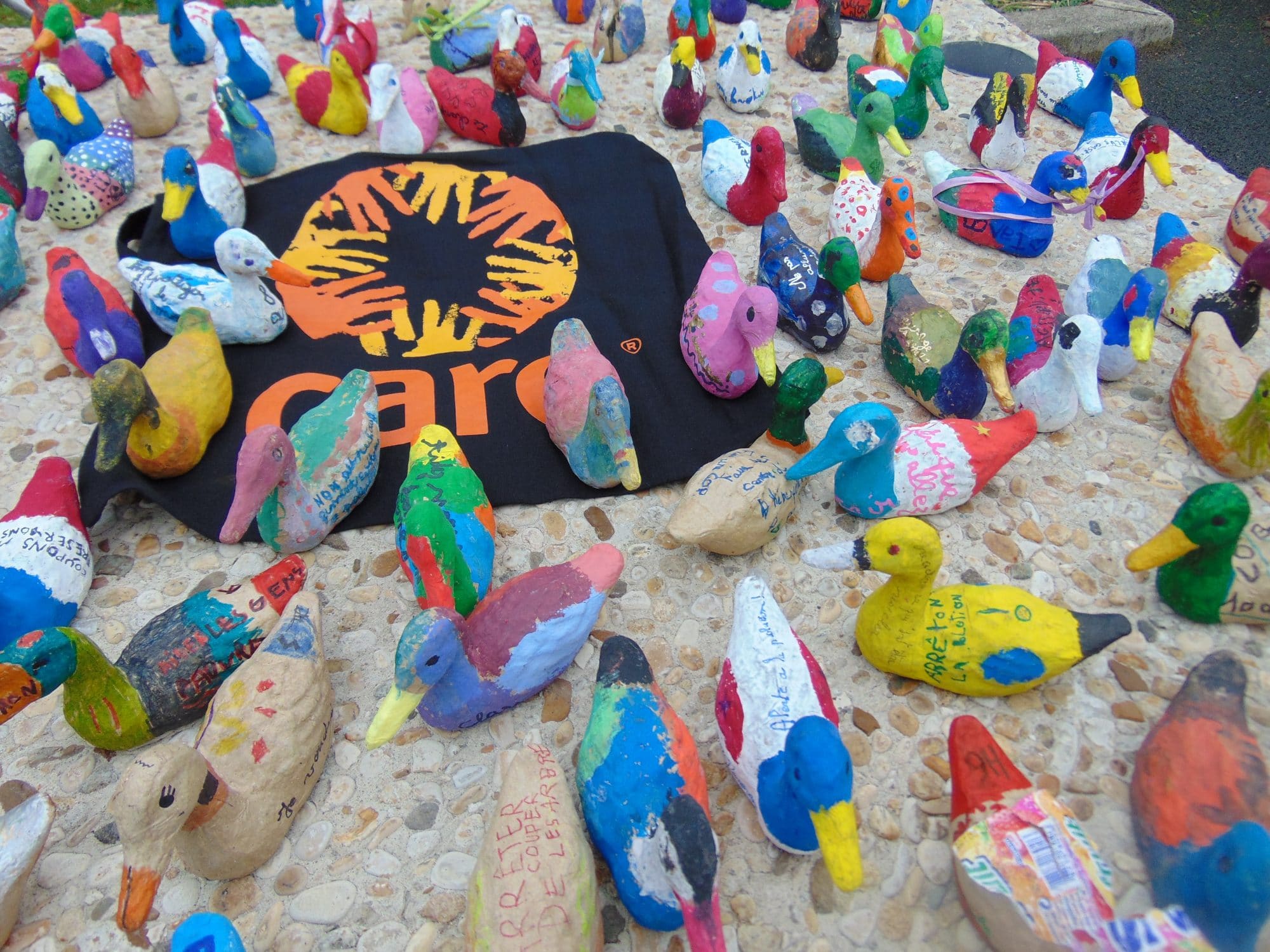CARE at COP21
November 30 – December 11, 2015
The world’s poorest and most vulnerable, who are least responsible for causing climate change, continue to bear the brunt of its impacts. This is an extreme global injustice. The Paris Agreement adopted at COP21 on 12 December 2015 was a landmark moment in the fight against climate change, but it is not enough for the world’s poorest people. The significance of the new climate deal depends on governments’ ability to deliver on the promises made in Paris
View CARE’s joint website with the Climate Vulnerable Forum calling for a warming limit of 1.5 degrees Celsius.
News
Read CARE’s analysis of the COP21 UN climate negotiations in Paris.
December 9- Countdown starts for Paris climate deal
The endgame for the UN climate deal has begun with only a few days left until countries are expected to adopt a new agreement to tackle climate change.
December 2 – World leaders need to match words with action on loss and damage as talks get serious
Three major civil society groups demand that the UN climate talks follow through on leaders’ calls for action to help the world’s most vulnerable people. This call follows the Climate Vulnerable Forum’s Declaration to upscale national climate action and a series of statements from richer countries at COP21 promising to help populations already suffering the effects of climate change. As the negotiations bed down to the detail the groups warn countries must now commit to a deal which properly addresses the unavoidable devastation and loss of lives and livelihoods.
December 2 – Netherlands signs new partnership with civil society to help disaster-prone regions
Minister Ploumen of Foreign Trade and Development Cooperation signed an agreement for a new five-year ‘strategic partnership’ with five Dutch agencies working to build community resilience in disaster-prone developing countries.
November 30 – CARE International’s reaction to world leaders’ remarks at COP21 UN climate talks
“President Obama made it clear that the US is aware that the world’s poorest people are the first to feel the worst impacts of climate change – and that the US has a responsibility to do something about it. We’re pleased the US recognizes this – but now the US must deliver on a Paris agreement that really catalyzes action for the poorest and most vulnerable populations,” Tonya Rawe, Senior Advisor for Policy and Research, Food & Nutrition Security Unit, CARE USA said after President Obama’s speech at the COP21 UN climate talks in Paris.
November 26 – Global leadership must seize the critical opportunity for a climate safer world
Next Monday, Heads of States and representatives from almost 200 countries will gather in Paris to negotiate a new universal climate deal to cut greenhouse gas emissions and tackle climate change. The COP21 UN climate talks are a critical turning point. This is the moment when governments can decide whether to commit themselves to a fossil fuel free, safer and more prosperous future, or to continue ‘business as usual’ with increasingly dangerous climate change impacts.
Publications
CARE has several publications and reports outlining our findings and positions on climate change and COP21.
Loss and Damage: Climate Reality in the 21st Century
With the current global average temperature now at around 1°C above pre-industrial levels, poor people in developing countries are already suffering devastation from climate change impacts. It is therefore critical and urgent for vulnerable countries and communities to adapt to climate change impacts.
COP21: Sealing a fair and just climate deal for the world’s poorest people
This paper outlines key issues on the agenda at the 2015 UN climate talks in Paris, France (COP21) and summarises CARE’s key expectations.
Gender dynamics in a changing climate
Gender, climate change and adaptive capacity are intricately linked. Poor and marginalised women and men face multiple and complex challenges.
Cultivating Equality
This report from Food Tank, CARE International and the CGIAR Research program on Climate Change, Agriculture, and Food Security (CCAFS) demonstrates how inequality determines who eats first and who eats worst, and how this shapes people’s ability to adapt to climate change.
CARE affirms the universal call for an ambitious, equitable deal at COP21 in Paris
Billions of people living in poverty – people who are the least responsible for greenhouse gas emissions – bear the brunt of climate impacts. This is an extreme global injustice.
TWIN TRACKS: Developing sustainably and equitably in a carbon-constrained world
This report provides opportunities for the global community to address the twin challenges of climate change and sustainable development, respectively through the United Nations Framework Convention on Climate Change (UNFCCC) and Post-2015 development processes.
